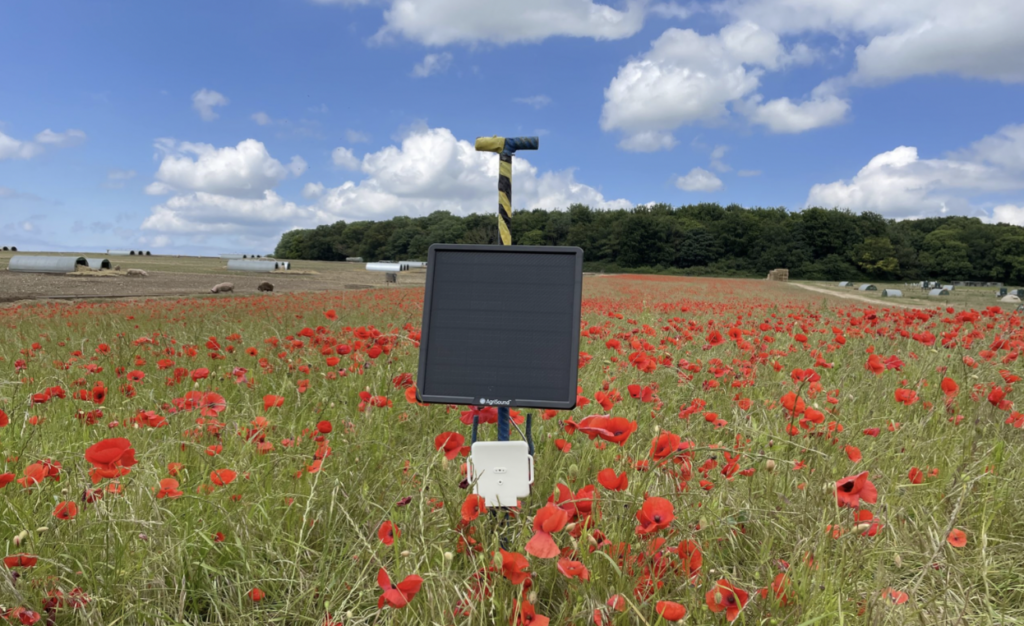Cranswick is pioneering a carbon insetting scheme to demonstrate the positive environmental impact of its livestock within the rotation on soil health and biodiversity.
A pilot scheme funded by a £362,000 grant from Innovate UK and in conjunction with leading agronomy company HL Hutchinson and agri-tech start up Agrisound will run over a two-year period across Cranswick’s aligned pig and poultry producers in the East of England.
Carbon Insetting is the process of integrating nature-based solutions within a company supply chain in order to reduce the amount of carbon emitted.
The Carbon Insetting Scheme will investigate and make improvements to the carbon sequestration of soils and increase biodiversity across Cranswick’s farms.
The scheme will contribute towards enabling the company to achieve Net Zero by 2040, using Cranswick’s own vertically integrated agricultural supply chain, rather than what it describes as ‘increasingly discredited traditional carbon offsetting schemes which are facing increasing scrutiny amidst greenwashing accusations’. The scheme will aim to deliver more transparent and effective ‘at source’ solutions
Hutchinson’s Omnia Terramap technology will monitor organic and inorganic carbon levels within the soils, and AgriSound’s groundbreaking bioacoustics listening technology will play a fundamental role in enabling Cranswick to statistically verify the quality of its insetting activity, by using their remote listening devices to continuously monitor insect and bird activity within Cranswick’s farming operations.
Cranswick’s farmers will be financially incentivised to sequester carbon and increase biodiversity by default, meaning they will receive additional payments for planting wildflowers and flower-rich grasses to bolster habitats’ biodiversity and boost healthier soils. Such schemes will be strategically planted to adjoin water courses and/or link woodlands and hedgerows to regenerate the wider landscape.
Bioacoustic algorithms
The funding will enable AgriSound to develop and deliver multiple new bioacoustic AI algorithms for key indicator species including hoverflies, butterflies, and moths, as well as honeybees and bumblebees. It will also incorporate open-access birdsong algorithms. It will deliver real-time data made easily available to Cranswick and its farmers via ‘sophisticated, yet simple’ data management platforms on desktop and mobile app.
Cranswick will share the blueprint for its Carbon Insetting Scheme (CCIS) with the wider agri-food industry, creating a legacy that will be critical in driving environmental gains across the wider agricultural sector, and a significant commercial opportunity for the technology providers.
Carbon emissions
Ash Gilman, Director of Agricultural Strategy at Cranswick said: “We have already made significant progress in reducing carbon emissions, but we wanted to really accelerate change from within. We are committed to ensuring this collaborative project will be able to verify the reduced carbon emissions within Cranswick’s agricultural supply chain, quantifying improvements in biodiversity, while at the same time financially rewarding our producers for their environmental efforts over and above their ability to produce quality pigs and chickens.
“We are determined that by being able to verify and demonstrate our leveraging of nature-based solutions, this Carbon Insetting Scheme will keep us solidly on track to net zero carbon emissions by 2040. By sharing the blueprint for the scheme within the wider agri-food industry in future, we hope to set a new standard for the adoption of sustainability within it.”




